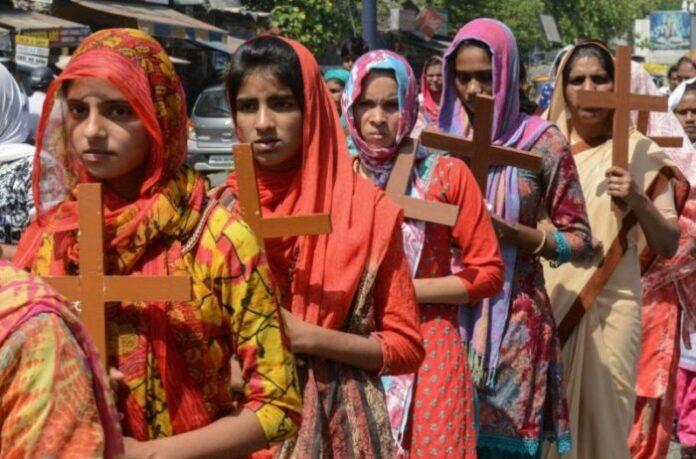Christians in the central Indian state of Chhattisgarh have appealed again to their state chief minister to protect them as hundreds of indigenous Christians continue to live in the forest amid rising violence.
Newsroom (3/03/2023 10:41 AM, Gaudium Press) — A delegation under the ecumenical Ecclesia United Forum (EUF) met chief minister Bhupesh Baghel and urged him to take “immediate steps to end violence,” said Father Johnson Thekkadayil, a Catholic priest working in the state.
“The brutal attacks unleashed on the Christians in Chhattisgarh, especially in the tribal regions, continues unabated,” Father Thekkadayil, who was part of the delegation saod, three days after they met Baghel.
Christians in the Bastar region, dominated by indigenous people, have been witnessing unprecedented violence, reports say. The forms of violence include social boycotts, assaults, parading men and women nude, and encroachments of Christians’ land.
Increased violence in the past six months has forced more than 1,000 Christians to flee their homes to save their lives.
The government claims the administration has established peace in the area and those Christians who fled their homes have returned. It also claimed that stringent action has been initiated against the perpetrators of the anti-Christian violence.
Christian leaders say the government’s action has been inadequate to ensure religious freedom.
“Hundreds of Christians are still living in the open fields without food, shelter, or clothing. They cannot return to their homes because of fear of being attacked and killed,” Father Thekkadayail said.
“Churches are not allowed to be opened. It is also reported that police do not allow the Christians to gather in their homes for prayer,” he said.
“Christians are still hunted, tortured, and maimed in this tribal region and threatened to renounce their faith in Christ or leave their homes and villages,” the delegation said in a statement given to the chief minister.
The elected village body “dictates to them what they should believe, where they should work, live or move,” said the statement shared with the media. It said these bodies violate fundamental human and constitutional rights.
“Women and children are stripped naked and physically assaulted” for violating their orders banning Christian worship, he said.
“Christians are not allowed to bury their dead. The attackers exhume the buried body and compel the Christians to take it out of their lands and villages. Christians are allegedly forced to consume alcohol and engage in superstitious practices,” the statement said
Shopkeepers in the villages are banned from selling Christian groceries, ration, medicine, or other supplies. “Christians are also prohibited from drawing water from public wells,” it narrates.
“Churches and Christian homes are attacked, looted and demolished with bulldozers. The legal land documents of Christians are taken away and burnt to ashes”, the statement said.
Christians are also arrested and sent to jail without even registering a police report “and few are released after several weeks, without any explanations for their arrest or imprisonment,” the delegation statement said.
“Christians in Chhattisgarh have become refugees in their own state and continue to live in fear,” it added.
Father Thekkadayail said the chief minister has assured of support to restore peace and harmony in the region.
Archbishop Victor Henry Thakur of Raipur had called on the chief minister on Jan 2. seeking protection for Christians after Sacred Heart Church in Narayanpur district was vandalized.
The mob destroyed everything inside the Church including the crucifix as part of the continued violence against the Christians.
Christians make up less than 2 per cent of the close to 30 million people of the state, a majority of whom are Hindu or practice the tribal faith.
- Raju Hasmukh with files from UCAN News



































